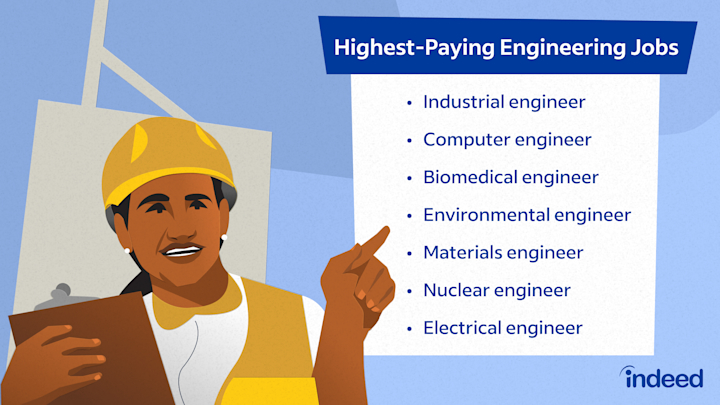Introduction
The Gulf region, consisting of countries like the UAE, Saudi Arabia, Qatar, Kuwait, Bahrain, and Oman, has long been a hub for engineering professionals seeking lucrative job opportunities. As the region continues to grow and expand, engineers in various fields, including civil, mechanical, electrical, and petroleum engineering, are in high demand.
This guide will delve into the types of engineering jobs available in the Gulf, the benefits of working in the region, how to apply, and tips to succeed in this competitive job market. Whether you’re an experienced professional or just starting your career, there are ample opportunities for engineers in the Gulf countries.

Why Gulf Jobs for Engineers?
The Gulf region offers unique opportunities for engineers due to its booming infrastructure projects, rapid development, and resource-rich environment. Here are some reasons why Gulf countries are ideal destinations for engineers:
1. Lucrative Salary Packages
One of the main attractions of working in the Gulf is the high salary potential. Engineers in the Gulf often earn tax-free salaries that are significantly higher than those in other regions. This financial benefit is especially appealing for expatriates.
2. Tax-Free Income
Gulf countries like the UAE, Qatar, and Saudi Arabia offer tax-free income, which means engineers can take home their entire salary without deductions for taxes. This is a major advantage, allowing professionals to save and invest more of their earnings.
3. Job Security and Stability
The Gulf region’s ongoing economic growth, especially in sectors such as construction, oil and gas, and infrastructure, provides job security for engineers. Many companies in the region invest heavily in the long-term development of their workforce.
4. Cultural and Professional Networking Opportunities
Working in the Gulf provides exposure to a multicultural environment, offering engineers opportunities to work alongside professionals from around the world. This broadens their network and can be valuable for personal and professional growth.
Types of Engineering Jobs in the Gulf
The Gulf region offers a wide range of engineering job opportunities across various sectors. Below are some of the most common engineering fields with high demand in the region:
1. Civil Engineering
Civil engineering is one of the most sought-after professions in the Gulf, especially due to the numerous large-scale infrastructure projects in the region. Civil engineers are needed for:
- Road Construction
- Bridges and Tunnels
- Building and Infrastructure Development
- Urban Planning
Key employers include construction companies, government agencies, and private developers.
2. Mechanical Engineering
Mechanical engineers in the Gulf are in high demand due to the region’s reliance on heavy machinery, transportation, and industrial projects. Common roles include:
- Maintenance Engineer
- Mechanical Design Engineer
- Project Engineer
These engineers typically work in industries like oil and gas, manufacturing, and HVAC (heating, ventilation, and air conditioning) systems.
3. Electrical Engineering
Electrical engineers are needed in a wide variety of sectors, including energy, utilities, telecommunications, and construction. Their work focuses on designing, installing, and maintaining electrical systems. Typical roles include:
- Power Systems Engineer
- Electrical Design Engineer
- Control Systems Engineer
The increasing demand for renewable energy sources, such as solar and wind, has also opened up new opportunities for electrical engineers in the Gulf region.
4. Petroleum Engineering
Given the Gulf’s rich oil and gas reserves, petroleum engineers are among the most sought-after professionals in the region. Roles for petroleum engineers include:
- Reservoir Engineer
- Drilling Engineer
- Production Engineer
Engineers in this field work with oil companies, energy firms, and drilling contractors.
5. Environmental Engineering
With growing concerns about sustainability and environmental protection, environmental engineers are essential in the Gulf region. They are involved in projects like water treatment, waste management, and renewable energy installations. Roles include:
- Environmental Consultant
- Sustainability Engineer
- Wastewater Treatment Engineer
6. Chemical Engineering
Chemical engineers in the Gulf work primarily in industries like petrochemicals, manufacturing, and food processing. Their responsibilities include designing processes for chemical production, ensuring quality control, and maintaining safety standards. Some common positions are:
- Process Engineer
- Production Engineer
- Quality Control Engineer

The Gulf Engineering Job Market: Challenges and Opportunities
While the Gulf offers a wealth of job opportunities, engineers also face challenges in securing positions and adapting to life in the region. Understanding these aspects can help you navigate the market effectively.
1. Visa and Work Permits
Most Gulf countries require foreign workers to obtain a work visa before they can start working. Employers typically sponsor these visas, but the process can vary depending on the country and the employer. It’s important to ensure that your potential employer handles all legal requirements, including work permits.
2. Cultural Adjustments
The Gulf region has a distinct cultural environment, and adapting to local customs and practices is essential. Engineers must be prepared to work in a multicultural setting while respecting local traditions and laws, especially regarding dress codes, behavior, and interactions in the workplace.
3. Competition
While there are many opportunities for engineers in the Gulf, competition can be fierce, especially for high-paying roles. It’s essential to have the right qualifications and experience to stand out in the job market. Additionally, networking plays a crucial role in accessing job opportunities.
How to Apply for Gulf Jobs as an Engineer
Securing an engineering job in the Gulf requires a strategic approach. Below are the steps you can take to improve your chances of landing a job:
1. Research Job Listings
There are various job boards and recruitment agencies specializing in Gulf jobs for engineers. Some popular platforms include:
- GulfTalent
- Bayt
- Naukrigulf
- Monster Gulf
These websites allow you to search for engineering jobs by category, location, and experience level.
2. Tailor Your Resume for Gulf Employers
Ensure your resume is tailored to meet the expectations of Gulf employers. Focus on highlighting relevant skills, qualifications, and international work experience. Mention your experience with large-scale projects, your ability to adapt to different working environments, and any experience in the oil and gas sector.
3. Prepare for Interviews
Remote interviews are common when applying for jobs in the Gulf. Be prepared to discuss your skills, experience, and motivation for wanting to work in the region. Additionally, understanding the cultural dynamics of Gulf countries will help you make a positive impression.
4. Get a Local Reference
A local reference or recommendation from someone in the Gulf can greatly enhance your job prospects. If you don’t have any direct connections, consider reaching out to recruitment agencies that specialize in the Gulf region. They can provide valuable insights and help you find a suitable job.
Benefits of Working as an Engineer in the Gulf
1. Tax-Free Salaries
One of the most attractive benefits of working as an engineer in the Gulf is the tax-free salary. Engineers can earn a competitive income without having to worry about income tax, making it a highly lucrative option for those looking to save money.
2. Career Advancement
The Gulf region offers many opportunities for career growth. With the rapid development and infrastructure projects in place, engineers can take on leadership roles and gain experience in diverse industries.
3. Accommodation and Health Benefits
Most employers in the Gulf provide accommodation allowances or free housing for their employees. Additionally, health insurance is often included in the employment package, ensuring access to medical care.
4. Cultural Exposure and Travel
Living and working in the Gulf gives engineers the chance to experience a unique cultural environment. The region is home to vibrant cities like Dubai, Doha, and Riyadh, offering opportunities for travel and exploration in a different part of the world.

Conclusion
Gulf jobs for engineers offer incredible opportunities to grow professionally and financially. The region’s booming industries, tax-free salaries, and diverse cultural environment make it an attractive destination for engineers worldwide. However, securing a job requires careful planning, research, and preparation.
By understanding the job market, focusing on the right qualifications, and following the steps outlined in this guide, you can increase your chances of landing a rewarding engineering job in the Gulf. Whether you’re interested in construction, oil and gas, or technology, the Gulf offers a wide array of options for talented engineers looking to advance their careers.
